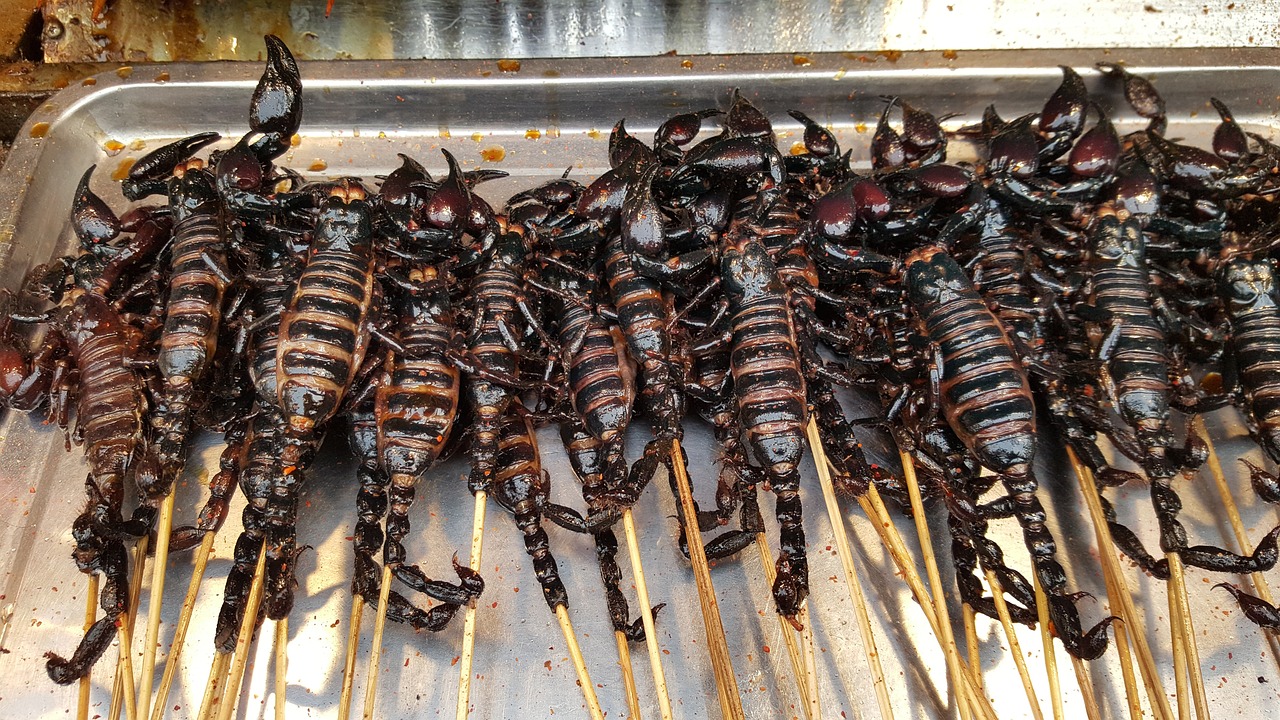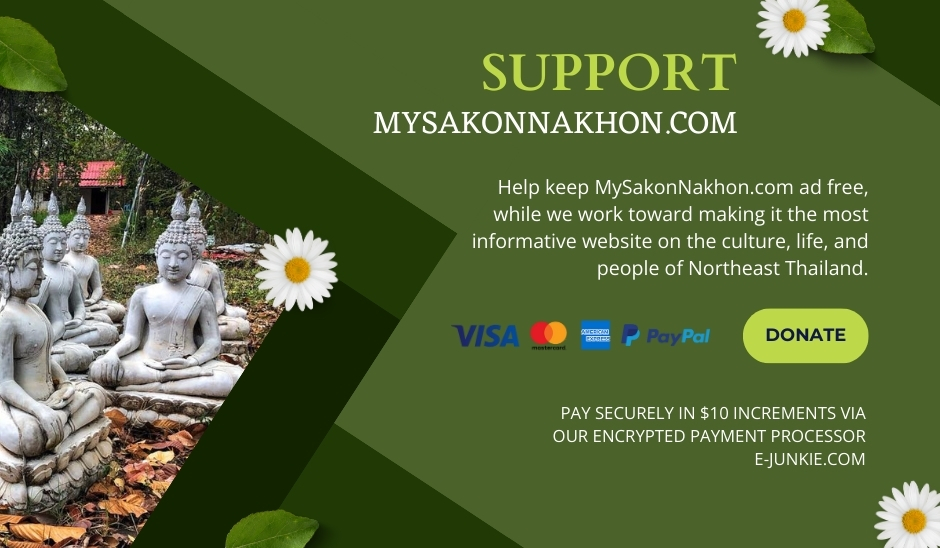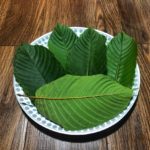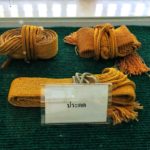
Treat a Scorpion Sting in Thailand

With the rainy season upon us, many people are seeing scorpions in Thailand — as the scary-looking arachnids escape from their flooded burrows. While there are treatments such as hydrocortisone cream to apply to a scorpion sting, Thais have been treating such stings for centuries, long before modern medicines. So, instead of heading to a pharmacy, you can cure a painful sting by using the wisdom of ancient Thai folk healers.
Make no mistake. A scorpion sting in Thailand is painful! We once were stung in the pinky finger by a dwarf scorpion, known in Thai as “maeng pawng khrae” (แมงป่องแคระ), who had been hiding in a towel in our bathroom. The pain was excruciating. It was by far the most painful sting we’ve ever felt.
The elephant scorpion known as “maeng pawng chang” (แมงป่องช้าง) is another common scorpion Thailand to look out for, but it is less prone to sting and it’s large size makes hiding in your linen harder. They are the scorpions that Thailand’s “Scorpion Queen” Kanchana Ketkaew allowed to crawl all over her body when she set the world’s record of living for 33 days with 5,000 scorpions.
Elephant scorpions are high in protein and the ones you sometimes will see grilled on a stick at Thai markets (especially in Northeastern provinces like Surin and Sakon Nakhon). Isaan legend has it that eating scorpions make you stronger and help you live longer, with some fearless Thai men drowning them in a glass of “lao khao” (white whiskey) and then eating them.

How to Treat a Scorpion Sting with Thai Folk Medicine
While a scorpion sting in Thailand is painful, it is not that serious or fatal (unless you have some rare allergic reaction to the scorpion’s venom). Treatment involves just waiting for the pain to subside (which can take hours) or by speeding up pain relief by applying one of the following Thai folk remedies to the area around the sting. These remedies can also be used to treat bee stings, wasp stings, and centipede stings in Thailand.
1. Smash several papaya leaves and pickled bamboo in a mortar and pestle — called a khrok (ครก) and sak (สาก) in Thai. Apply the potion to the area of the scorpion sting and leave on for 5-10 minutes. Papaya leaves can be found everywhere, but pickled bamboo is not always ready at hand. If you have no pickled bamboo, you can apply a paste made by just crushing the papaya leaves.
2. Chew the Thai herb Esldpagon (เสลดพังพอน) and then apply the chewed leaves to the stung skin. The leaves will help draw out the scorpion venom and relieve your pain. Esldpagon is an herb not well known in the West, but it is a popular Thai medicinal herb included in ointments that treat fatigue, joint pain, back pain, muscle pain, insect bites, and headaches, as well as help to improve blood circulation. It is sometimes included in the balms that Thai massage therapists use.
3. Mix lime juice with a teaspoon of monosodium glutamate (MSG) to form an ointment. Moisten a cotton ball with the ointment and apply to area with the scorpion sting. Most homes in Thailand do have MSG in the kitchen, and all have limes, so this is easier to prepare than what you might think.
4. Cut of the tops of 3 morning glory plants and smash them in a pestle with a tablespoon of Lao Khao (white whiskey). Apply the lotion to the site of the scorpion sting.
5. Cut shallots or large garlic clove in half and gently rub it over the scorpion stung area for 2 – 3 minutes. The pain will soon go away.
If you are looking for a scorpion sting treatment in Thailand that is a mix between ancient Thai wisdom and more modern pharma, we would recommend Siang Pure Oil, which alleviates all kinds of pain, including insect bites and scorpion stings.
- Thai Inhalers: Boost Your Memory & Recall with “Ya Dom” - May 18, 2024
- Phra Khun Paen: Thai Love Spells & Amulets - May 17, 2024
- Visakha Bucha Day in Thailand (2024) - May 16, 2024




